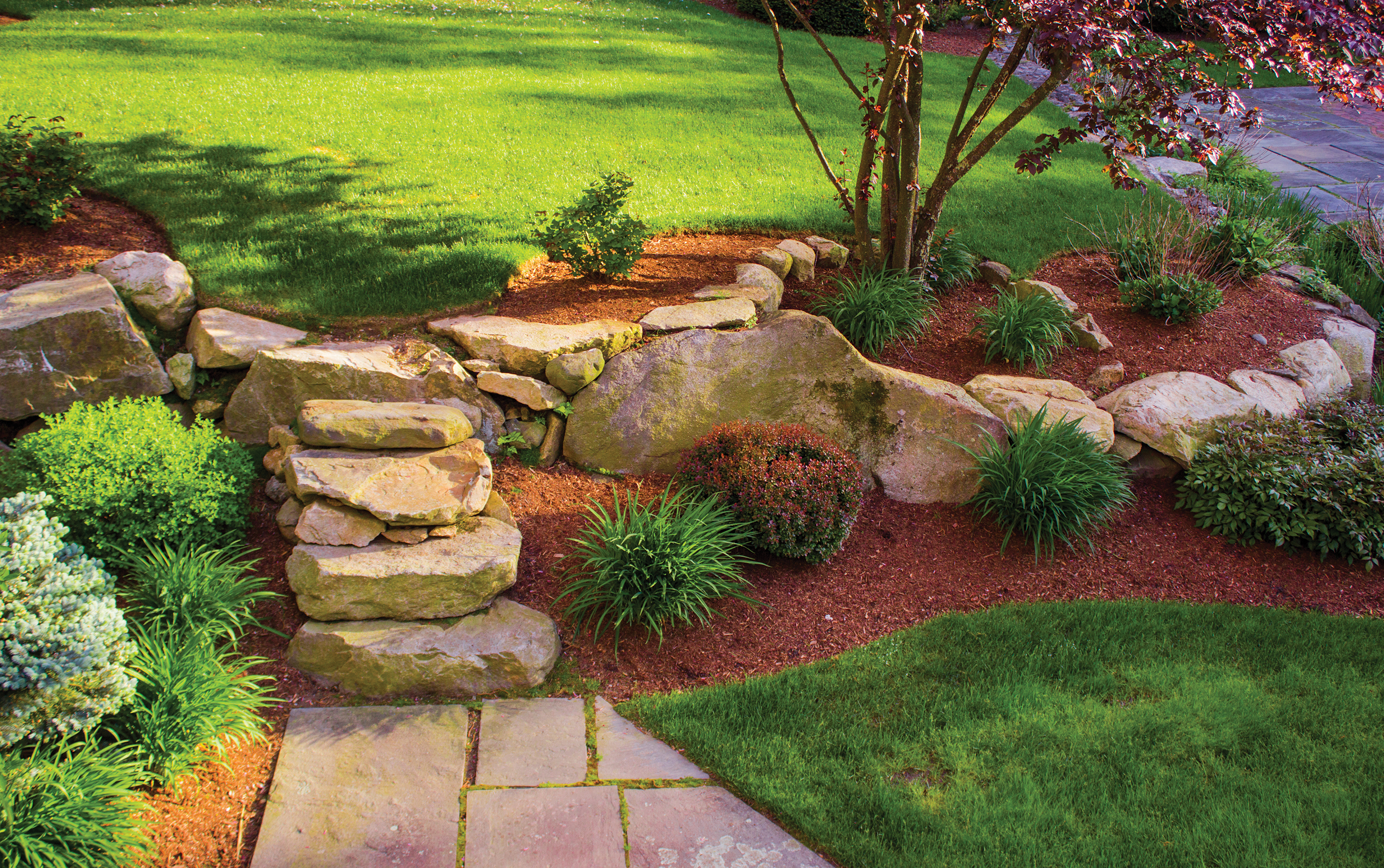
Mulch & more: a how to guide for Healthy Yards
Brought to you by Gardening at the U of S, the City of Saskatoon, the Saskatoon Food Bank and Learning Center Garden Patch, and the Saskatchewan Waste Reduction Council Compost Coaches!
Download this article as a pdf brochure
Mulch
Want a low maintenance flowerbed or vegetable garden? Then consider mulch! When you mulch you have
• less weeding,
• less watering,
• less soil compaction,
• less winterkill, and
• healthier plants.
What is Mulch?
Mulch is a layer of material spread on the surface of your soil, beneath and around your plants. While mulching will cut maintenance drastically, it isn’t magic. Weed seeds can still blow in, but they’re far fewer and much easier to deal with.
Don't Garden Harder, Garden Smarter!
Plants will adapt to their local environment, so the more consistent the conditions in your garden are kept the more likely your plants will be able to manage their own health without your interference.
Mulching keeps water and soil temperature more
Ultimately, the right mulch will improve your soil, lead to healthier plants, and build a healthy garden ecosystem.
Organic Mulches
Not only do plant-based (organic) mulches lower your weed and water maintenance, they also build healthy soils as they break down.
Simply spread a 15 centimeter (6 inch) layer of the following mulches under and around your plants;
•
• fallen leaves
• compost
• post peelings or wood chips
• peat moss
• newsprint—shredded or layered
• shredded bark
• evergreen needles and cones*
•
• flax straw or shives
*Evergreen needles and cones will not harm the pH of your soil and can be used as mulch and in your compost. Suppressed plant growth under your evergreen trees is not due to the pH of the soil, it is because plants have little to no access to water or sun.
Inorganic Mulches
Inorganic mulches (that are not derived from plants) will still provide the same weed and water benefits as your organic (plant-based) choices, but don’t tend to improve your soil or garden ecosystem. We always recommend organic mulches for growing areas. While you can still use a heavier organic mulch like shredded wood in these areas, you can also place the following inorganic mulches in places with high traffic like playgrounds,
• pea gravel
• crushed rock
Note that shredded tires are not recommended due to human health and environmental safety issues due to chemical leaching.
Garden Ecosystem
Organic mulches provide a home for beneficial insects, like ladybugs and spiders. These insects will reduce the number of pests you have in your garden. Pine cones make a lovely mulch with plenty of habitat for ladybugs and spiders. Fallen leaves are also effective mulch for ladybugs.
How to Apply
• Weed the area to be mulched.
• Water deeply before and after applying mulch to ensure there is enough moisture in your soil for your plants to access. You only need to water when mulch is first applied.
• Apply your mulch evenly. Don’t mound it around tree trunks like a mountain. Spread mulch about 15 centimetres (6 inches) thick in your garden bed.
• Enjoy your summer. You will still need to weed and water occasionally but it’s not likely to be very often, especially once your plants adapt to the new ecosystem you’ve created.
Mulching Tips
• Plastic sheeting, landscape fabric, untreated wood planks, and cardboard can be used as a temporary mulch between your garden rows.
• Landscape fabric does not work well for longterm weed control since weeds will still seed on top and become difficult to remove. The best use of landscape fabric is for landscaping—namely, to prevent erosion in raised beds. For weed control under rocks, try brown cardboard instead.
Mulch & More
Use mulch in combination with other healthy yard practices, such as backyard composting,

